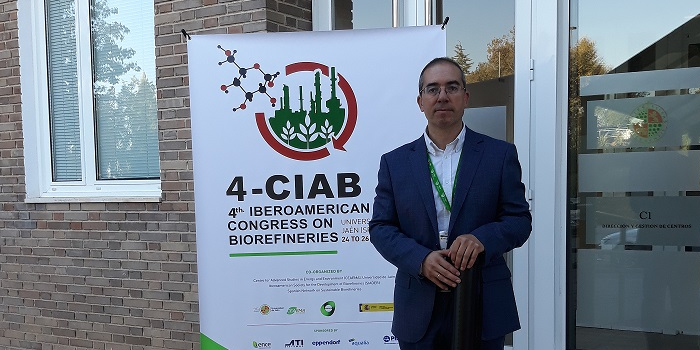The Iberoamerican Congress on Biorefineries celebrates its fourth edition between October 24 and 26, in Jaén, and is consolidated as the scientific congress in which the possibilities of establishing biorefineries in specific areas are presented and valued. Biorefineries are facilities that make it possible to obtain a wide range of products based on a renewable raw material, such as agricultural waste.
More than 250 researchers from all over the world gathered at this international meeting, organized by the Ibero-American Society for the Development of Biorefineries (SIADEB), a network that brings together experts from eight Ibero-American countries and whose objective is to promote development of biorefineries and promote the technological development necessary for the installation of the new generation of biorefineries in these countries.
The coordinator of the LIFE ALGAECAN project and researcher at the CARTIF Technology Center presented the main innovations that this initiative proposes, its objectives and the progress achieved so far. The LIFE ALGAECAN consortium is working to design a wastewater treatment system from the fruit and vegetable processing industry, by cultivating heterotrophic microalgae. The objective is to replace the system used until now, traditional aerobic digestion, so that, instead of sludge waste and nutrient losses, added value microalgae are produced.
The Spanish Network on Sustainable Biorefineries and the Center for Advanced Studies in Energy and Environment of the University of Jaén have also participated in the organization of this scientific meeting.

